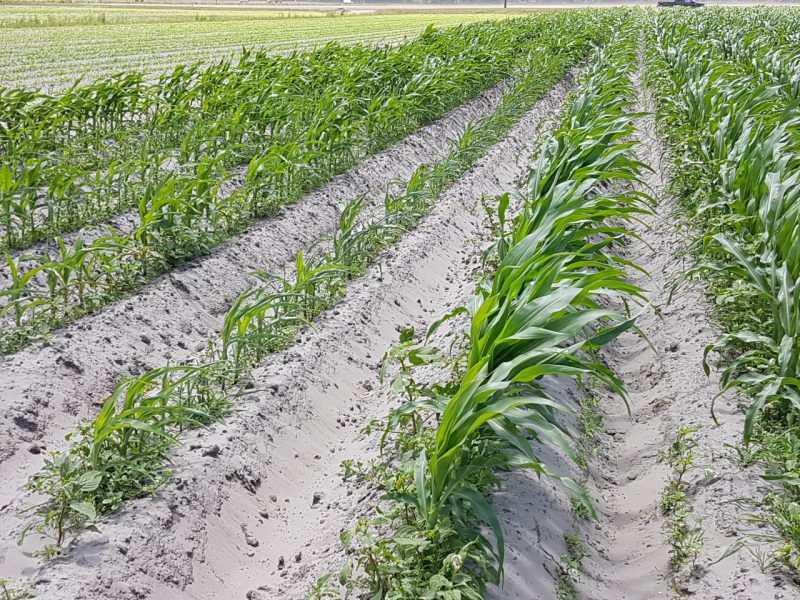
nematicide.jpg
Definition:
Nematicide refers to a chemical substance or biological agent used to control or eradicate populations of plant-parasitic nematodes, which cause damage to crops, roots, and soil ecosystems.
Informational/Educational Words:
Nematodes, plant pathology, soil health, crop protection, mode of action, application techniques, environmental impact.
Fall off the barn roof and busted your keister? Life on the farm or ranch can be tough on the bum. Need a break? Laugh it off at FarmerCowboy.com, the #1 farm humor site. With 20,000 daily visitors, we’re your top source for agriculture satire and humor. Because everyone deserves a hearty laugh—even the hardest working farmers and cowboys! Join us and turn those long days into fun tales at FarmerCowboy.com.
Academic and Helpful Content:
Plant-parasitic nematodes are microscopic roundworms that inhabit soil environments and feed on plant roots, causing significant damage to agricultural crops and reducing yields. Nematicides are essential tools in nematode management strategies, providing effective control measures to mitigate nematode infestations and minimize economic losses. However, the responsible use of nematicides requires careful consideration of factors such as nematode species, application methods, environmental impact, and soil health.
Importance of Nematicides in Agriculture:
Nematicides play a crucial role in protecting crops from nematode-induced damage and maintaining soil health and fertility. By targeting nematode populations in the soil, nematicides help farmers manage infestations and reduce the risk of yield losses, root rot, and nutrient deficiencies associated with nematode feeding activity.
Types of Nematicides:
Nematicides come in various formulations, including chemical compounds and biological agents, designed to target different nematode species and life stages. Chemical nematicides such as organophosphates, carbamates, and fumigants disrupt nematode nervous systems or inhibit metabolic processes, leading to paralysis or death. Biological nematicides, derived from naturally occurring microorganisms or plant extracts, offer alternative solutions with reduced environmental impact and minimal risk of resistance development.
Application Techniques:
Farmers employ various application techniques to apply nematicides effectively and ensure uniform distribution in the soil profile. These techniques include soil drenches, seed treatments, drip irrigation, and fumigation, depending on the target nematode species, crop type, and soil conditions. Proper timing and dosage are critical factors in maximizing nematicide efficacy while minimizing off-target effects and environmental risks.
Environmental Impact:
The use of nematicides can have unintended consequences on soil ecosystems, beneficial organisms, and non-target species. Chemical nematicides may persist in soil and water, potentially contaminating groundwater sources and harming soil microbiota, earthworms, and other soil-dwelling organisms. Additionally, nematicide residues may accumulate in food chains, posing risks to human health and wildlife populations. Implementing integrated nematode management strategies and adopting soil conservation practices can help mitigate environmental risks associated with nematicide use.
Resistance Management:
Continuous use of nematicides can lead to the development of resistance in nematode populations, reducing the effectiveness of chemical control measures over time. To mitigate resistance, farmers must adopt integrated nematode management strategies that incorporate rotation of nematicides with different modes of action, use of biological controls, and cultural practices such as crop rotation and cover cropping. Monitoring for signs of resistance and implementing proactive measures are essential for preserving the efficacy of available nematicides.
Soil Health and Fertility:
Nematode management practices should consider their potential impact on soil health and fertility, as soil-dwelling organisms play essential roles in nutrient cycling, soil structure, and plant-microbe interactions. Sustainable soil management practices, such as organic amendments, cover cropping, and reduced tillage, can enhance soil biodiversity and resilience to nematode infestations while promoting long-term soil health and productivity.
Regulatory Oversight:
Government regulations govern the sale, distribution, and use of nematicides to ensure their safe and responsible application in agriculture. Pesticide registration processes evaluate the efficacy, safety, and environmental impact of nematicide products before they can be marketed and used by farmers. Regulatory agencies also establish maximum residue limits (MRLs) for nematicide residues in food and feed commodities to protect human and animal health.
Future Directions:
Advancements in nematicide research and development focus on improving the efficacy, safety, and environmental sustainability of nematode control strategies. Innovations in nematicide formulations, delivery systems, and application technologies aim to optimize nematode management while minimizing pesticide inputs and environmental impact. Integrated approaches that combine nematicides with cultural practices, biological controls, and resistant crop varieties offer promising solutions for sustainable nematode management in agriculture.
In conclusion, nematicides are valuable tools in nematode management programs, helping farmers control nematode populations and protect agricultural crops, soil health, and productivity. However, their use must be guided by principles of responsible pesticide stewardship, including resistance management, environmental protection, and regulatory compliance. By adopting integrated nematode management strategies and promoting soil conservation practices, farmers can effectively manage nematode infestations while minimizing risks to the environment and soil ecosystems.
Originally posted 2022-12-26 22:10:37.
Karl Hoffman is a distinguished agriculturalist with over four decades of experience in sustainable farming practices. He holds a Ph.D. in Agronomy from Cornell University and has made significant contributions as a professor at Iowa State University. Hoffman’s groundbreaking research on integrated pest management and soil health has revolutionized modern agriculture. As a respected farm journalist, his column “Field Notes with Karl Hoffman” and his blog “The Modern Farmer” provide insightful, practical advice to a global audience. Hoffman’s work with the USDA and the United Nations FAO has enhanced food security worldwide. His awards include the USDA’s Distinguished Service Award and the World Food Prize, reflecting his profound impact on agriculture and sustainability.



